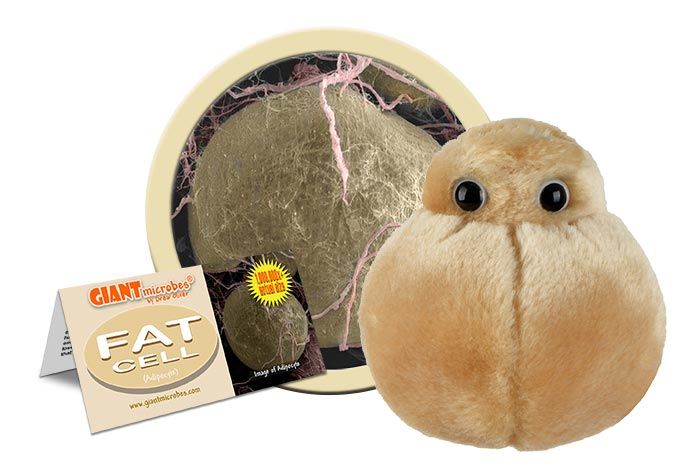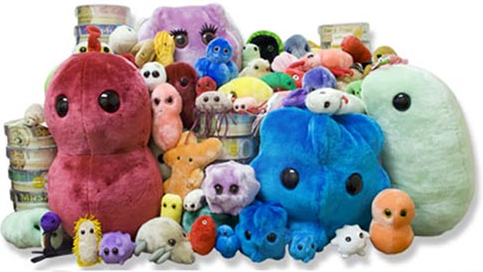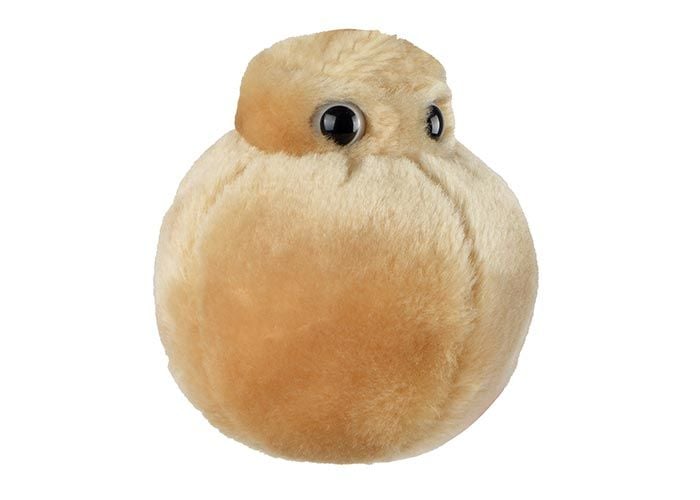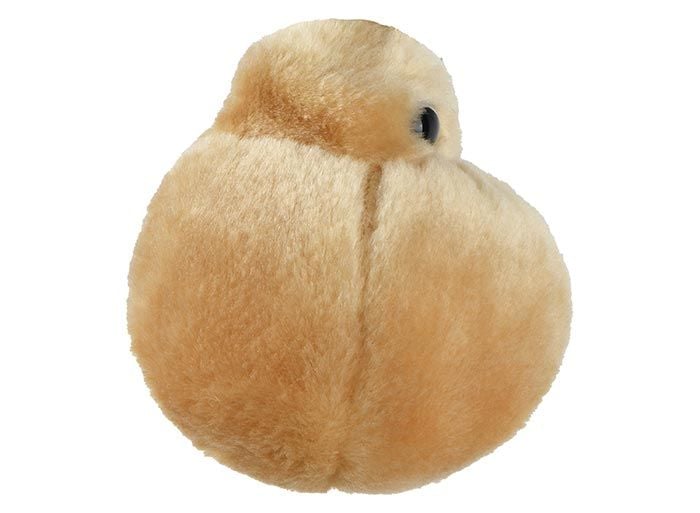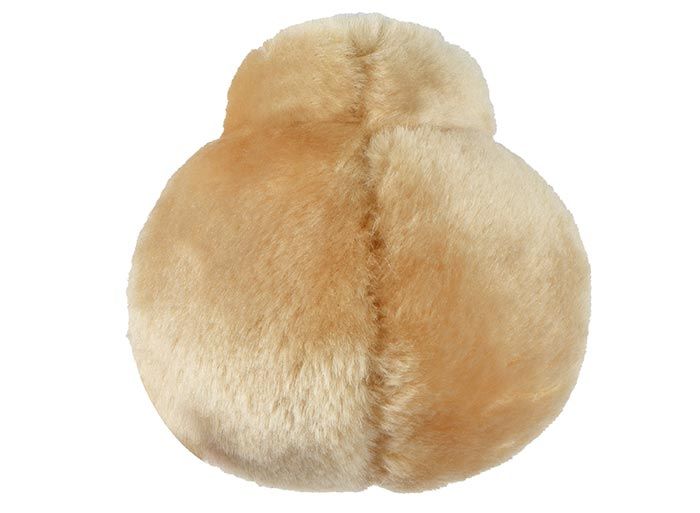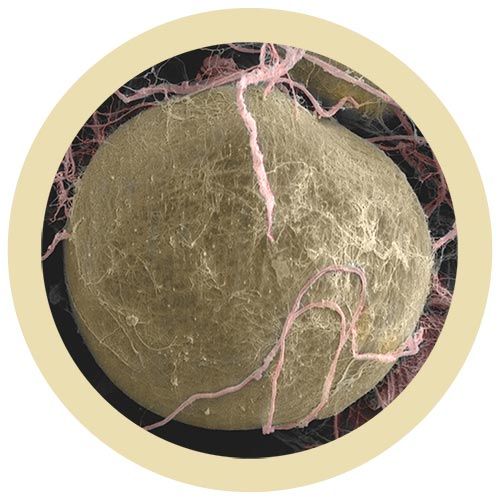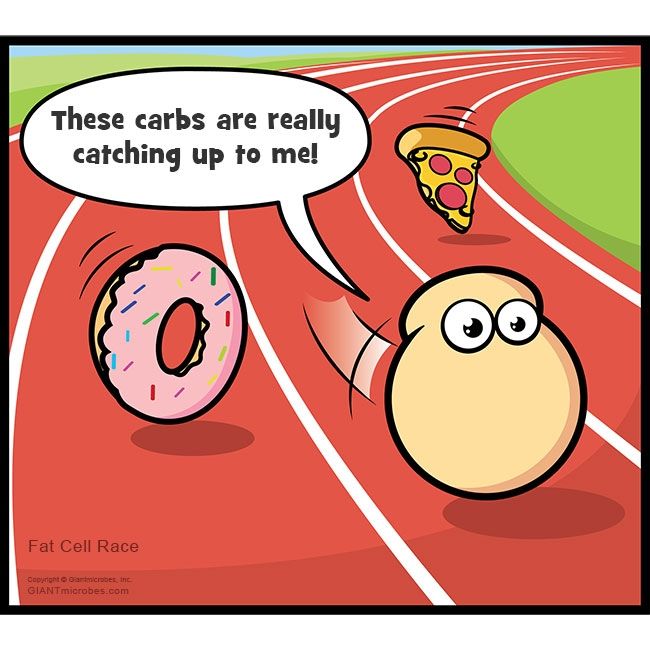Obesity (Fat Cell)
This adorable plush representation of Fat Cell and Obesity provides a hands-on-way to learn about your body cells and how they influence your health. GIANTmicrobes Fat Cell is a representation of Obesity. Obesity is a chronic disease, not a lifestyle choice. This global health problem impacts the lives of hundreds of millions of people.
This huggable, educational gift is for family, friends, doctors, scientists, nutritionists, trainers, educators, fitness, and health enthusiasts. Our Fat Cell plush will help everyone learn about weight loss, chronic illness, and biology. Fun reminder to eat healthy, act smart and keep moving daily!
Features detailed stitching, high quality materials and an educational card with facts about cells and health.
Size: 11 x 10 x 9cm
Product Details
Additional Information
| Sizes | Giantmicrobes are based on actual microbes, cells, organisms and other critters, only 1,000,000 times actual size! Gigantic (GG) 40-60cm XL (XL) 25-38cm Original (PD) 12-20cm Minis (MM) 5-10cm each Keychain (KC) 5-10cm with clip |
|---|---|
| Materials | Plush from all new materials. Stuffed with polyester fiber fill. Surface washable: sponge with water & soap, air dry. |
| Packaging | Each plush microbe includes a printed card with fun, educational and fascinating facts about the actual microbe or cell. |
| Safety | Every product meets or exceeds U.S. and European standards for safety. For ages 3 and up. |
All about Obesity (Fat Cell)
FACTS: The average human body has 40 billion corpulent little cells whose primary job is to make you fat!
These portly little adipocytes (Greek for “fat cell”) are just trying to be helpful, of course. The fat they store provides warmth and protection for your body, and even transports essential vitamins such as A, D, E, and K throughout your body. Most importantly, the energy in your fat can keep you alive for months, if the need ever arises.
But is it likely to do so? Fat chance. In the modern world, overeating is as easy as pie. And when it comes to calories, you are what you eat – minus the two to three thousand calories per day that the average body needs to survive (depending on metabolism, size, gender, and activity level).
And here’s something else to chew on: it takes about 3,500 calories to make a pound of human fat. That may sound like a lot, but if you over-eat by just five percent, you can put on a pound a month. If you eat twice what you need (think holidays), you can put on a pound a day! Worse still, fat can clog up your arteries and increase your odds of developing deadly heart disease. Now that’s food for thought.
The good news is that if you consume just a little less than you need, those missing calories add up too – and your little fat cells will be happy to slim down to provide them. Even better, if you can stomach exercise, you can burn over 10 calories a minute! So if you want to lose weight, swallow your pride and try going to the gym. Because that’s the skinny on fat.
| Description | Fat cells, also called adipocytes, help your body to use the excess energy it takes in. It can store or burn the calories. This toy is a cute reminder to exercise and eat healthy- a perfect gift for your dieting friend! |
|---|
| Name | Adipocyte comes from the Greek: adipo=fat, cyte=cell. |
|---|
| Actual Size | 0.1mm, the thickness of a sheet of paper. |
|---|
| System | Digestive System, Endocrine System |
|---|
| Quantity | 30 billion (in human body) |
|---|
| History |
1866- Czajewicz provided observations of fat formation. 1870- Flemming studied the development of fat in subcutaneous tissue and the results of starvation. 1870- Toldt said that fat tissue was separate from connective tissue. 1902- Hatai described brown adipose tissue (BAT) in newborn babies as a way to protect against the cold. |
|---|
| Fascinating Facts |
Brown Fat: is called “baby fat” and is found mostly in babies and hibernating animals in order to keep them warm. Constant Number: Fat cells grow in size to accommodate more fat. They will only divide if there is such an excessive amount of fat that the existing cells can’t contain it. |
|---|


